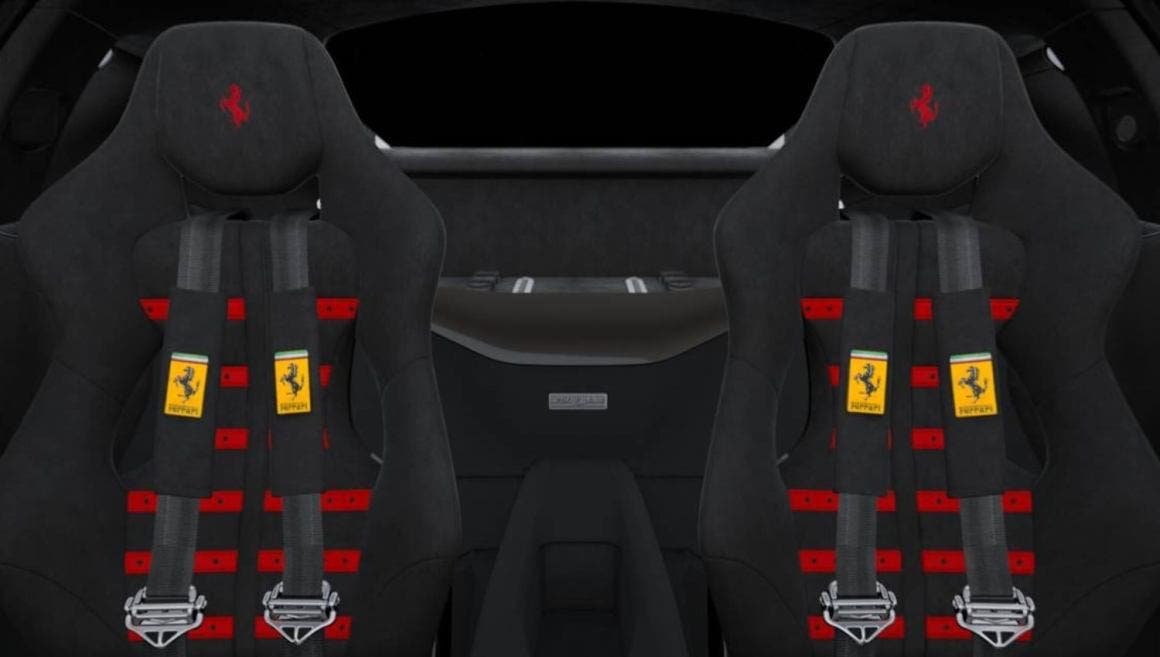Ferrari never stops to innovate, especially in a key area like safety. A new patent filed by the Cavallino Rampante (Prancing Horse) hints at a future with four-point safety belts homologated for road driving.
“Smart” safety belts: Ferrari challenges the limits of road safety
Four-point belts are already widely used in motorsport, where they offer superior safety compared to classic three-point belts. Their design, with four anchor points to the seat, minimizes body movement in the event of an accident, minimizing the risk of whiplash and other injuries.
However, traditional four-point belts have a limitation: their stiffness can cause discomfort while driving. To remedy this problem, Ferrari has devised an innovative system using belts with “smart” stitching. These stitching is designed to disintegrate in a controlled manner in the event of an impact, gradually releasing the driver’s body and reducing the G-forces he or she is subjected to.
To provide the highest security level and appropriate level of restraint, Ferrari’s patent provides for the use of three different types of stitching.
Sacrificial seams will disintegrate in case of lesser impact, assuring their comfort during routine driving;
trigger stitching will open in more violent impacts, thereby releasing the driver’s body partially; and dampening stitching will only go into action in severe accidents, providing maximum protection.
Moreover, the patent refers to the use of innovative materials such as Ny-Flex, which combines lightness and strength to ensure maximum comfort and safety.
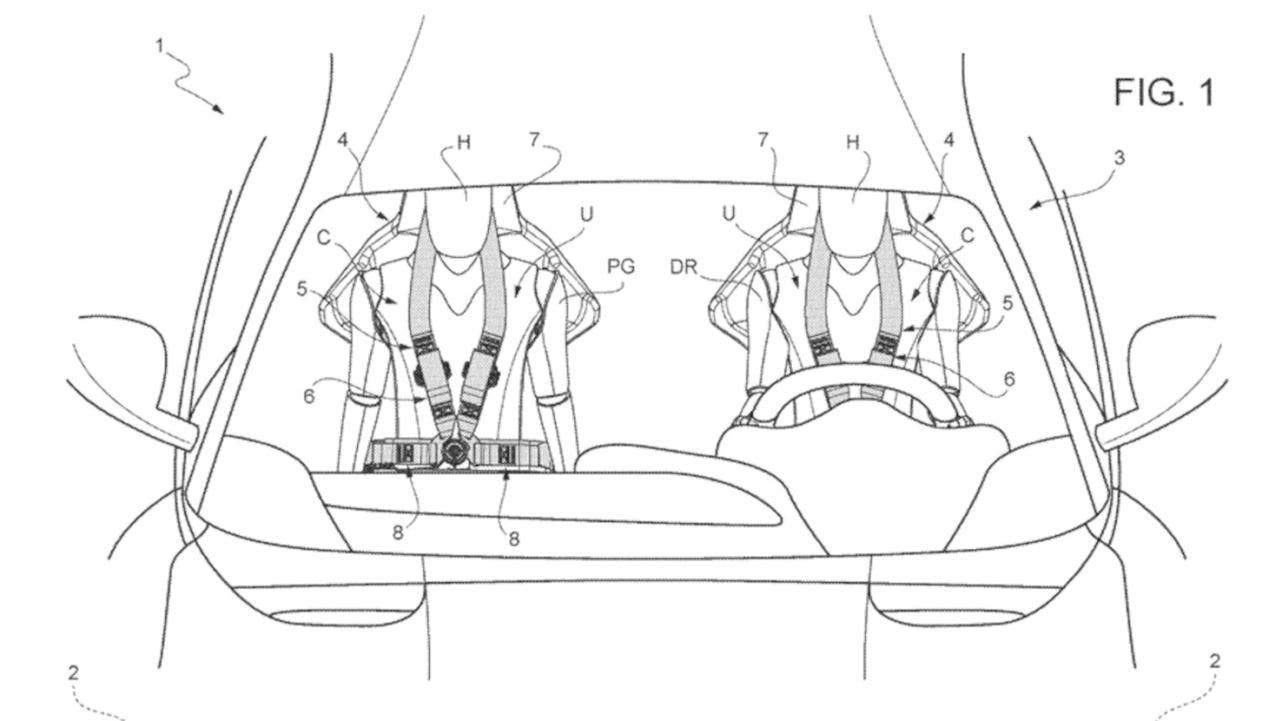
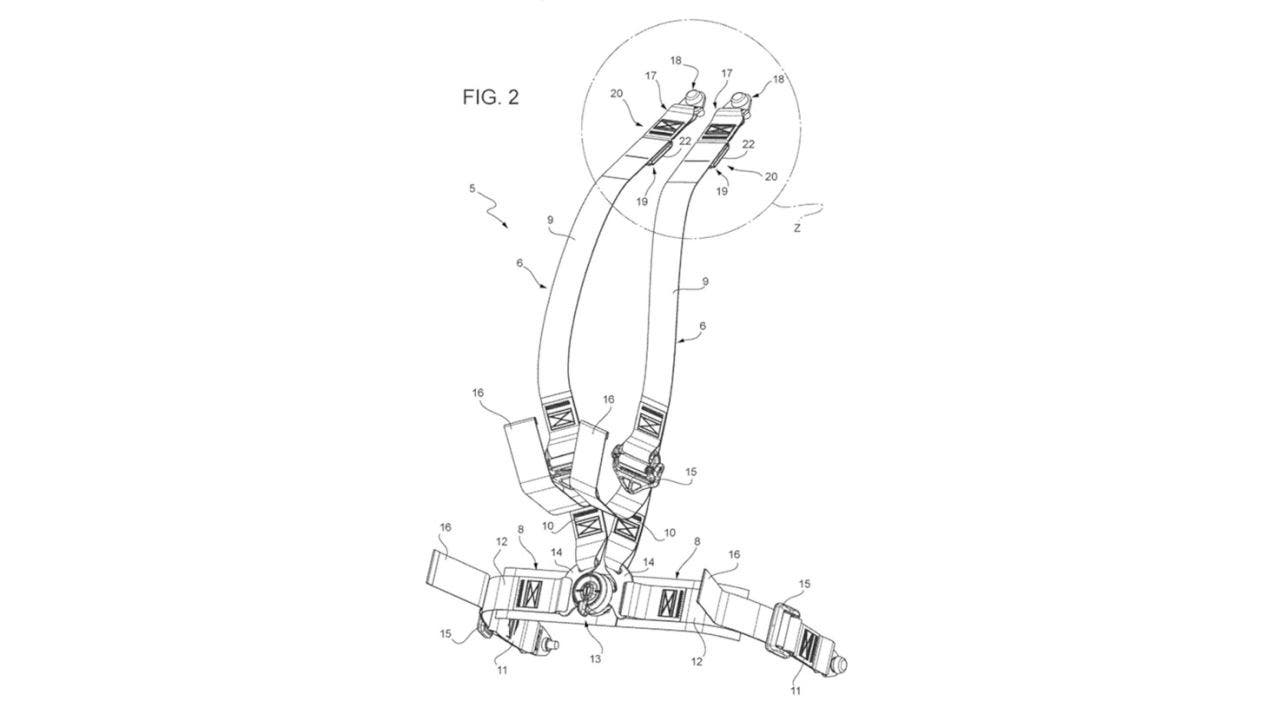
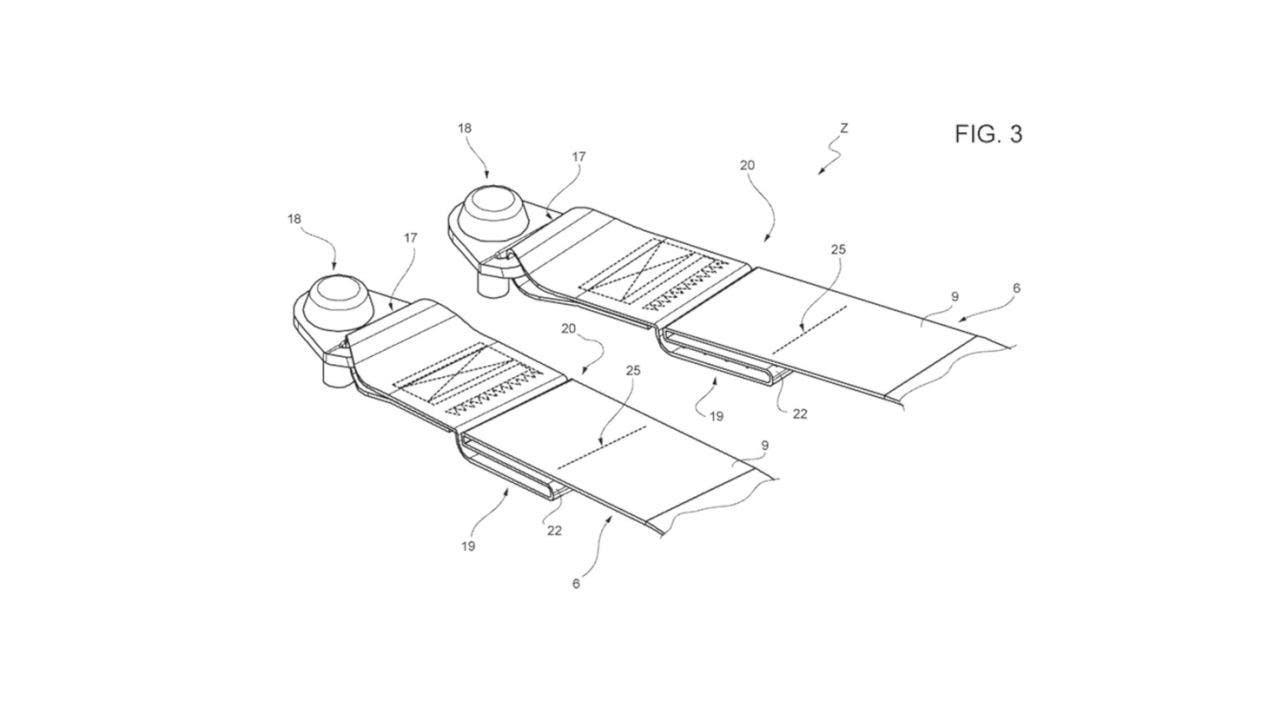
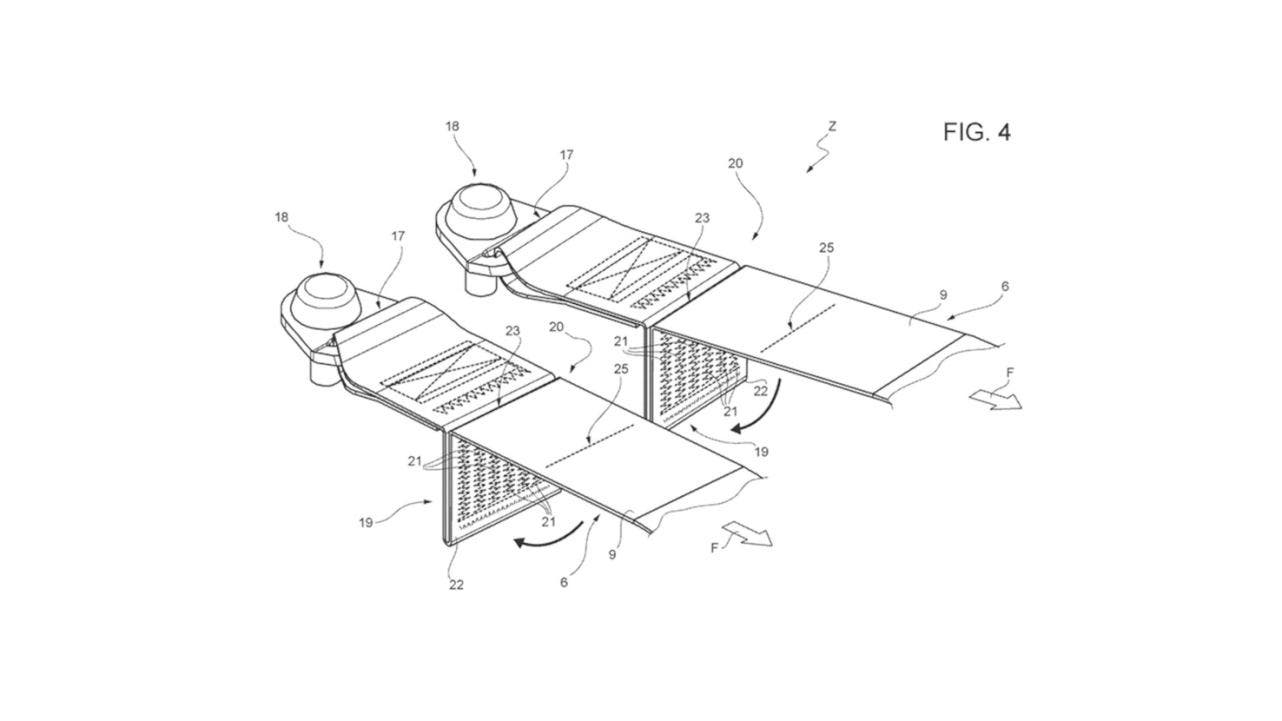
Challenges and prospects for the future
Despite the revolutionary potential of this technology, some questions remain to be resolved before Ferrari’s four-point belts can be approved for road driving. Regulatory authorities will have to carefully evaluate the safety and effectiveness of this innovative system.
If the tests do confirm the expectations, the Ferrari may have taken a fundamental step toward the future of automotive safety, paving the way for a new level of protection and comfort for drivers around the world, however.

